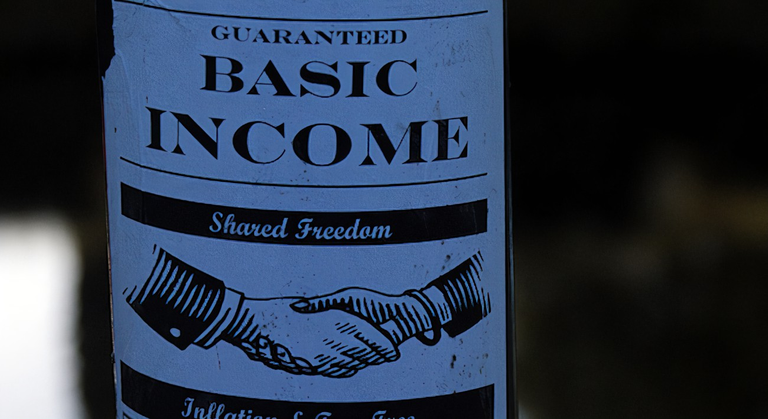The thing that interested me the most about Dr. Trost's presentation on Universal Basic Income (OSU Video) is that the proposition of UBI seems to be more compatible with capitalism than it is with socialism. I always associated the idea of UBI with socialists who desire economic equality between all citizens and all classes, but, after careful consideration, it seems a UBI would have greater effects in societies that are capitalist than in those that are socialist. The basic reason for this is that a UBI would give citizens freedoms that are best realized in a decentralized economy.
Under a UBI, U.S. citizens would not have to worry about earning enough money from their jobs to sustain their basic needs, so there would be more freedom for citizens to work the kind of jobs that they want. This benefit of increased job freedom could not be fully realized under socialism, because socialism requires that the government would have control over the means of production, and thus they would also be the ones to decide what jobs citizens should work and where.
As Dr. Trost pointed out, a UBI would also decrease (if not remove) risks involved in entrepreneurship. This would work really well with capitalism because it would allow for more businesses to pop up and diversify the decentralized market. On the other hand, under socialism, this freedom would be unusable since there would be no ability to create any business or production outside of the government's will. Such a desire could only be fulfilled, in that case, through good luck or governmental status.
Another benefit of UBI that Dr. Trost pointed out was that a minimum wage enforcement would become redundant, which would create job openings meant for people with very few skills. This might only be slightly better in capitalism than in socialism, but under socialism, there would be a smaller number of low-skill job openings because instead of thousands of individual businesses creating those kinds of positions, it would all be done through the central government.
The last point I would like to make is that a UBI in a socialist country might be either unnecessary, redundant, or equivalent to wages made in jobs created by the government. After all, what would be the point in giving everyone enough money to fulfill their basic needs if they're already being paid by the jobs laid out for them by the government? Rather, the utility in providing a UBI for all citizens is to give them more economic freedom to work the kind of job they want or start their own business with no fear of losing the ability to sustain themselves.

